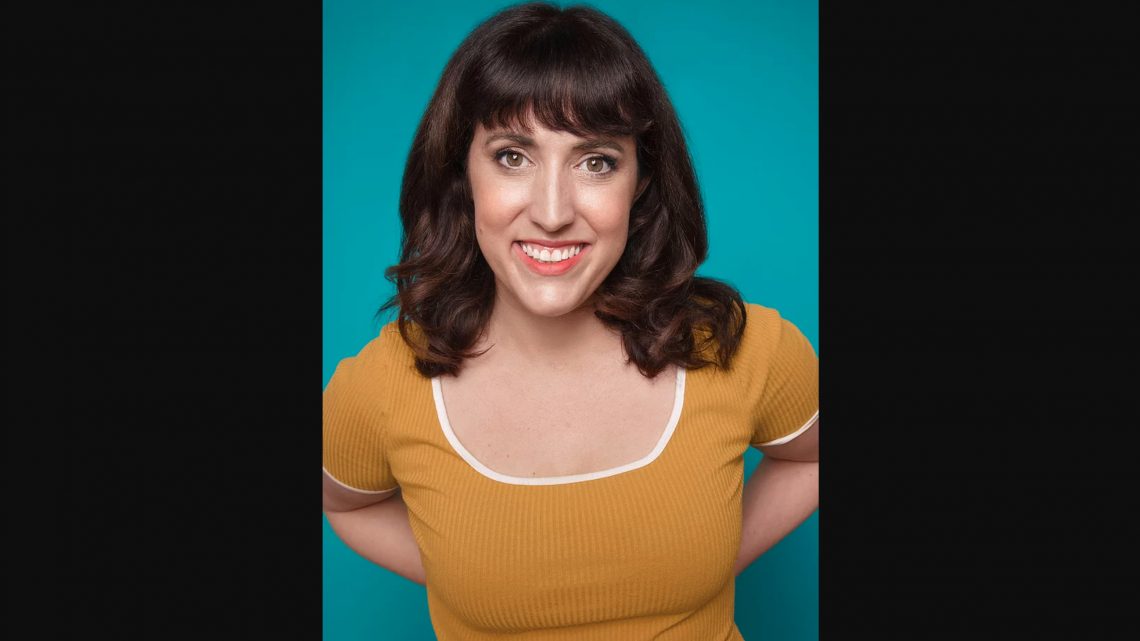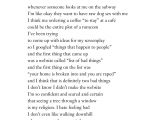
‘Dirtbag Anthropology’ Covers Masculinity, Love, and Loss
February 19, 2021The topic of “masculinity” may induce eyerolls in some, who either think they’ve long hit a saturation point on this matter, or refuse to be mansplained on this topic by a woman. But both camps will be pleasantly surprised by Dirtbag Anthropology, an Audible Original by comedian Kate Willett that manages to tackle the concept of masculinity with both seriousness and humor, thanks in part to a wide-ranging cast of guests.
“What I wanted to write was a book that addressed some of these questions that we talked about from a real and vulnerable perspective,” Willett told VICE. “I couldn't do that without being willing to look at it in my own life in that way.”
In the same amount of time it takes to cross the country by plane, Willett discusses her own experience as a queer woman in the comedy industry, her relationships with women, men, loss, grief, and the evolution of her politics and career as a standup. The audiobook contains multiple interviews, and it almost feels like a limited-run podcast. Willett speaks to comedy veterans Margaret Cho and W. Kamau Bell, her father, and others.
Dirtbag Anthropology covers a lot of ground in Willett’s personal life. Though the topic of masculinity is a through line, Willett also recounts her own deep personal losses, her brief marriage, and how she ended up dating a comedian she had an online beef with.
VICE spoke to the comedian and author about her work and the experiences that led up to her book.
VICE: How did you get the idea for this book, and why did you format it this way?
Kate Willett: At the height of MeToo, there was obviously a lot of emphasis on what men should not be doing. But I found myself—like a lot of people—wondering, “What should we expect from masculinity in a positive way? Is masculinity a thing that should be talked about at all?” I found myself having a lot of conversations with men in my life who are really trying to be good people, and just unsure about some of the social expectations, like, “How can I let them know that I'm interested in them and without being weird about it?” And I wanted to write a book that addressed some of these things.
And I particularly wanted to write a book that got to the heart of what is left out of these conversations that happen all the time, at this point. What are the pieces that are missing? What are the things that people feel like they can't talk about? And so I wanted to write something about that from a comedic perspective. I knew I wanted to include interviews, one, because it feels really weird to write a book about men, [laughs] when I'm not one. But I also knew that a big thing that really informed why I wanted to write this is my own relationships with men in my life, including my dad, and my friends, and other other comedians I've been really close to, romantic partners, those relationships and a lot of cases have really changed the way that I thought about this stuff. So I wanted to go through and kind of examine some of the main areas.
Some of the conversations, as a listener, it almost felt weird that I was hearing them. The conversation with your dad was such a personal conversation. Was that hard to do?
My dad, that conversation in particular, was the thing that I felt the most anxious about. Because that is a really personal conversation. I was talking to my dad about the experience of what it was like taking care of my brother when he was terminally ill. But a big value that I've always had about art and comedy is that by going to the place where it is, truly personal and real, that's where it actually becomes relatable.
There’s a theme in the book, aside from masculinity, is loss and catharsis, like that conversation with your dad.
Yeah, I think so. That was not something that I planned on, when I came to this book, I wanted to write a funny guide for men that was also real and vulnerable, but just the fact that I was writing it during this two year period when I experienced so much personal loss, and also society has experienced more broadly, in the middle of the pandemic? That did really inform the questions that I set out with. Conversations about toxic masculinity or positive masculinity, a lot of times, are a little reductive. Like, “Hey, guys, stop sexually harassing people.” There definitely are people that need that information ASAP. But I think that there's a lot of people that are really trying to be good, and that there's a lot of other forces that make it really hard to be a good person.
This broad experience of loss that our society has had, in 2020, made some of the ways that we used to talk about feminism, or toxic masculinity, feel a little bit off. I remember 2015, manspreading on the train or whatever, [people would] get mad about it. But now, if someone's on the train, they're probably an essential worker, they're risking their lives. It doesn't feel reasonable to be so glib about that stuff anymore.
Do you have any broad takeaways from the conversations you had for this book, in terms of advice for guys who are trying to be better?
When I was writing the last chapter, I was like, obviously, this is the main question of the book. I had to answer it. I really wasn't sure if there is a difference between trying to be a good man, and trying to be a good person. The conclusion that I came to is: there really isn't, which makes sense. I spent two years really thinking about this stuff. It would be really weird if the conclusion I came to at the end of that was, "Men and women are different," like some 90s road comic. But the things that make a person good: compassion, empathy, being willing to resolve conflict, being willing to listen to another person's perspective, having an openness to growth, these are all things that really would make life better if everyone did this stuff.
There's different things that make it hard for men in a lot of situations. In a society that is telling you that you're not supposed to be emotional. The more shut off you are from your own feelings, the harder it is to have empathy for other people, right? I'm not saying that that's all men, but I'm just saying some of the ways that we have conceived of masculinity throughout the past, has made some of that basic human connection stuff a little harder.
Something that comes up for all those reasons, and generations of conditioning: a book like this just looking at the synopsis, some guys may get offended, or subconsciously see it as an attack. Like, “What did I do personally wrong?”
I know that people are gonna react that way to it. And it's funny, because the attack book is really not the one that I wrote. [laughs] Especially by the time I was done with it, because the big thing for me, in writing, this was like, "Alright. I live in a world with men that I'm close to, how can I be a good person in that dynamic as well?" There's so many. There's so many challenges to figuring out the way to have relationships with men in your life, your personal life, your workplace, as a woman, and it's really changed, in the past five years given the stuff that people have become aware of. I don't know that it's been particularly useful to me, personally, to have those conversations feel like something that's taboo. Yes, I shouldn't have to ever navigate the experience of having, men say sexist shit around me, of course, but I do.
Are there insights or takeaways that you didn't expect to come across in the process of reporting the book?
I actually would assume that that's true in a lot of situations, there are a ton of men who are thinking about like, "Okay, what is the way to be a good man, to be a good person?" I actually think that a lot of people of all genders are really thinking about these questions more deeply and more compassionately than would be represented just on the internet. Nobody is the stereotype. Even that guy that loves to antagonize people that you just made up, even he is very complicated. Even the person that's posting "kill all men" actually has really super complicated viewpoints that go much deeper. I guess that's not surprising, but it was a surprising thing to experience.
I remember this from the conversation with [actor/activist] Dylan Marron: just because most people probably can resolve things, and just because most people are really worthy of empathy and compassion, it doesn't mean that you have to resolve all situations. I really thought about the question, what's a conflict that's worth trying to resolve? Obviously, there is some kind of line for me, but if you really believe that people can all find some sort of understanding together, at least potentially, what are the criteria for choosing to to do that, or to want that?
What else have you been working on? Are you still doing Zoom shows?
Yeah, I still am doing Zoom stand up. I'm really excited about my podcast Reply Guys, which is a leftist feminist comedy podcast, and we've had some really, really, really, great guests. Over the past six months, we had Senator Ed Markey, Jabari Brisport, journalist Kim Kelly. And just some really interesting conversations about mutual aid and efforts to unionize and leftists and progressives that are running for office. There's been some really good conversations on that podcast that I am really proud of. And I can't wait to do stand up again, more frequently once the pandemic is over. I'm hoping that once it's safe from back to performing and hopefully writing another book.
“Dirtbag Anthropology” is available now.

